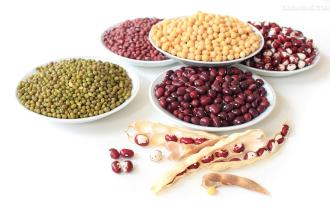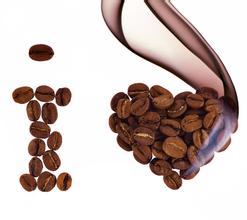Guatemala Antigua Floral Coffee Grind Scale Variety Taste Manor Introduction
Guatemalan coffee has a strong aroma, even if you don't drink it, just smelling it is already a pleasure. Antigua coffee has a rich and velvety mellow, rich and lively aroma, and fine sour taste. When the attractive fragrance lingers on the tip of your tongue, there is an indescribable mystery. You may feel dull at the first sip, but as the coffee cools down, you will find it slightly sweet and be surprised by its depth.
Antigua coffee is popular with most coffee lovers only because of its distinctive aroma. Because it is planted in the hills of volcanoes, it can retain its own characteristics more than Costa Rica, the main reason is that it has more geographical and climatic advantages than Costa Rica. Guatemala is located in the tropics, but due to the relatively high altitude, the climate is mild, it is a subtropical climate. Under the influence of this climate, coffee trees blossom and bear fruit more slowly than coffee trees in other parts of the world. However, the mild climate and fertile soil make it an excellent environment for growing coffee.
The coffee industry, run by the Mayans, once boomed Guatemala's economy and dominated the national economy. Unfortunately, the political situation in Guatemala is not good for these coffee growers. High output is usually a sign of a country's overall economic prosperity. However, coffee production in Guatemala has declined relatively, at 700kg per hectare, compared with 900kg per hectare in El Salvador and 1700 kg per hectare in Costa Rica. Guatemalan coffee exports are controlled by private companies, but the National Coffee Commission controls other sectors of the coffee industry.
At present, some of the best quality coffee from Guatemala is exported to Japan, where each cup of coffee sells for $3 to $4. In order to revitalize its coffee industry, Guatemala has specially set up a special coffee association and gives maximum funding and attention to these high-quality coffees. these efforts will soon bear fruit, and the real beneficiaries are not only coffee growers, but also coffee lovers all over the world.

Important Notice :
前街咖啡 FrontStreet Coffee has moved to new addredd:
FrontStreet Coffee Address: 315,Donghua East Road,GuangZhou
Tel:020 38364473
- Prev

Introduction to the Flavor description of Grinding scale of Sun Yega Shifeiwaka Coffee beans
European monastic academics opened up a local coffee growing industry, which was later run by coffee communities or cooperatives in villages around the town. There are no special plantations here, and coffee trees are naturally scattered in the forest and countryside. During the harvest season, the Ethiopian Coffee Trading Company goes to town to buy coffee beans collected by farmers and eventually sell them under the brand name of Yega Xuefei. Yejiaxue
- Next

Introduction to the varieties of Tarazhu Coffee beans in Costa Rica by Grinding scale treatment
Although the taste is relatively rough, it can be regarded as a kind of high-quality and inexpensive coffee, which has its own standard because it is distributed all over the country and its solid quality varies (NO.2~NO.8 according to the number of sundries, NO.13~NO.19 according to the size of beans, and six grades according to taste). Almost all Arabica species are of good quality and stable in price, and the most famous one is Goth.
Related
- Detailed explanation of Jadeite planting Land in Panamanian Jadeite Manor introduction to the grading system of Jadeite competitive bidding, Red bid, Green bid and Rose Summer
- Story of Coffee planting in Brenka region of Costa Rica Stonehenge Manor anaerobic heavy honey treatment of flavor mouth
- What's on the barrel of Blue Mountain Coffee beans?
- Can American coffee also pull flowers? How to use hot American style to pull out a good-looking pattern?
- Can you make a cold extract with coffee beans? What is the right proportion for cold-extracted coffee formula?
- Indonesian PWN Gold Mandrine Coffee Origin Features Flavor How to Chong? Mandolin coffee is American.
- A brief introduction to the flavor characteristics of Brazilian yellow bourbon coffee beans
- What is the effect of different water quality on the flavor of cold-extracted coffee? What kind of water is best for brewing coffee?
- Why do you think of Rose Summer whenever you mention Panamanian coffee?
- Introduction to the characteristics of authentic blue mountain coffee bean producing areas? What is the CIB Coffee Authority in Jamaica?

